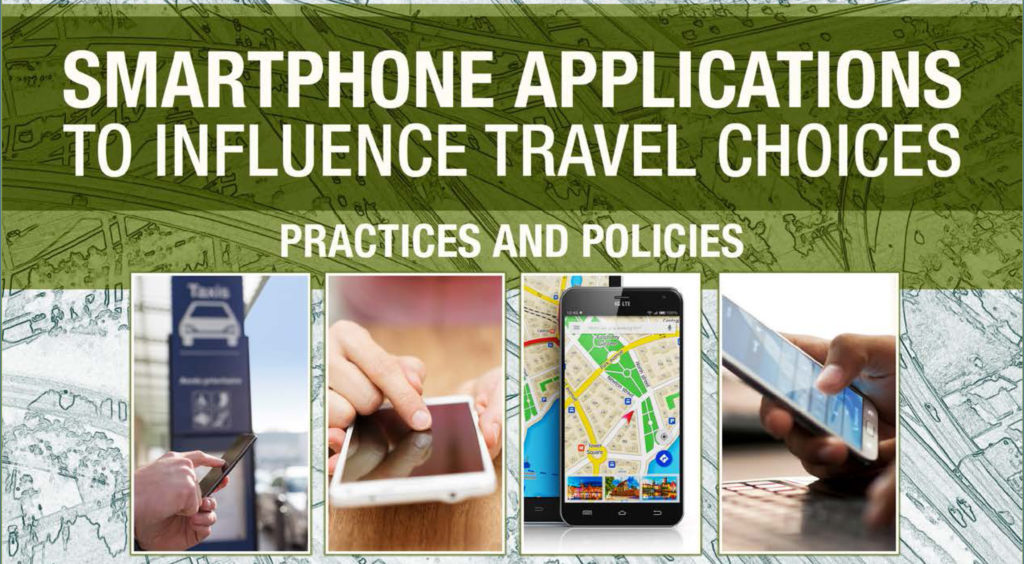As you've probably noticed, smartphone apps are having a big impact on transportation. A new report, Smartphone Applications to Influence Travel Choices: Practices and Policies, by the U.S. Department of Transportation and UC Berkeley's Transportation Sustainability Research Center provides a comprehensive overview of the growing number of apps influencing travel choices and is meant as a primer for policymakers. The number and variety of apps mentioned is eye opening and suggest that even bigger change might be in store than what's already expected.
Professor Susan Shaheen, an author of the report, commented by e-mail about the significance of the trend, "smartphone apps could play a transformational role in the transportation sector." The transformations she pointed to include, "commodification of transportation, multi-modal mobility platforms with routing, booking, and payment features."
After tracing the lineage of smartphones and apps back to the early 1980s, the report culls data and identifies application areas that might best serve public agencies, transportation managers, and elected officials aiming to influence travel behaviors.
One section highlights operating systems, gamification (Pokémon GO, anyone?), and existing apps — both in and out of the transportation realm that are or could be useful to encourage engagement, including both business-to-consumer and peer-to-peer options:
… mobility, vehicle connectivity, smart parking, courier network services, health, environment and energy consumption, and insurance apps are transforming mobility, improving access to transportation services, enhancing traveler engagement, and spawning innovative businesses, services, and mobility models. … The use of game theory and game mechanics, such as gamification and incentives, remain important elements of app design. Nearly one-quarter of the transportation apps identified for this scan incorporated some form of gamified incentive. Incentives within mobile applications, such as incentives to download the app and incentives to use the app (or more specifically, gamified incentives that encourage or discourage a particular type of application use), are common strategies being employed by app developers to enhance user engagement and encourage user retention across a wide array of transportation applications.
Another section digs into the impacts on traveler behavior, concluding "that behavioral mechanisms from economics and psychology are already being deployed widely in transportation apps, with a variety of benefits."
Some of these benefits include:
- Alleviating cognitive burdens with powerful search tools (e.g., Google Maps);
- Improving actual and perceived traveler control over journeys (e.g., OneBusAway);
- Improving trust in carpooling services (e.g., Carma);
- Changing norms around transportation, such as the ease of mobile ticketing (e.g., RideTap formely GlobeSherpa);
- Impacting price directly by enabling cheaper services (e.g., Uber) and changing perceptions of value across multiple modes (e.g., Moovel, formerly RideScout);
- Improving information availability and so shaping service usage (e.g., Transit App);
- Harnessing existing social pressures and generating new ones to shape travel behavior in a desired direction (e.g., Waze); and
- Delivering financial and non-financial incentives in favor of one behavior or another (e.g., GasBuddy, Changers).
The final chapter focuses on open data and multi-modality as guiding principles for transit agency apps.









